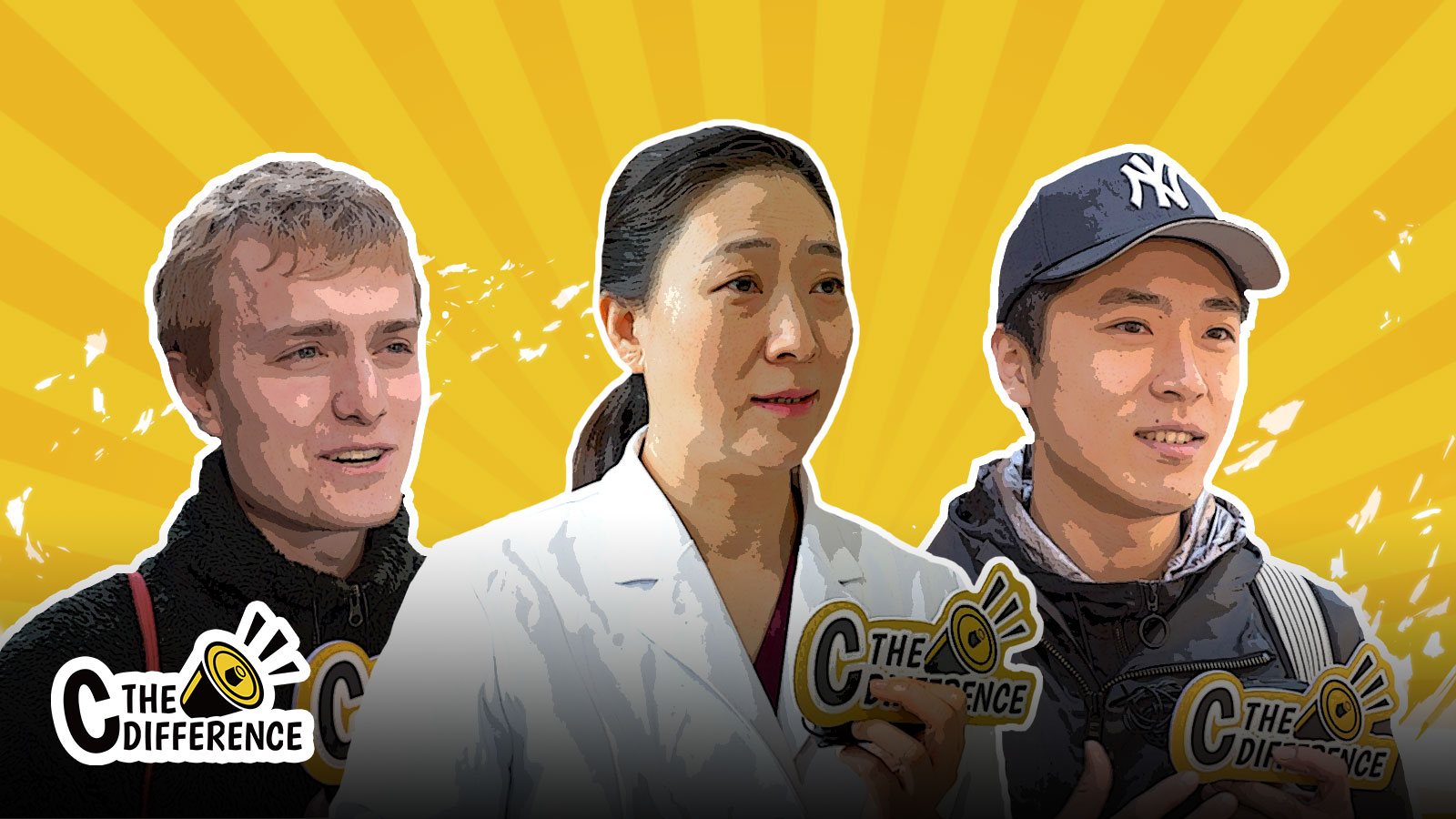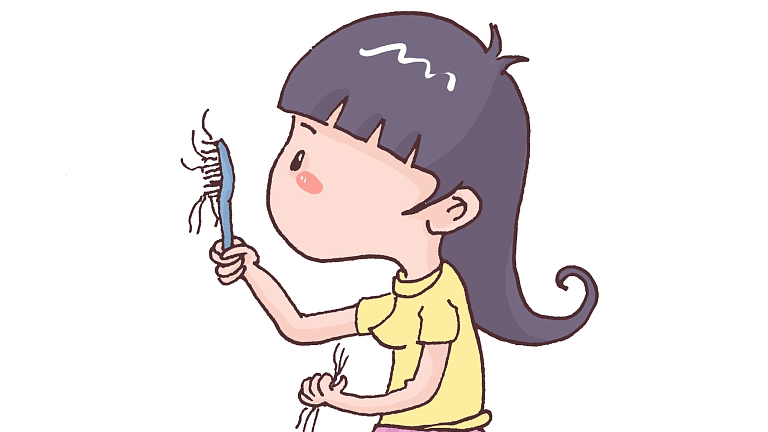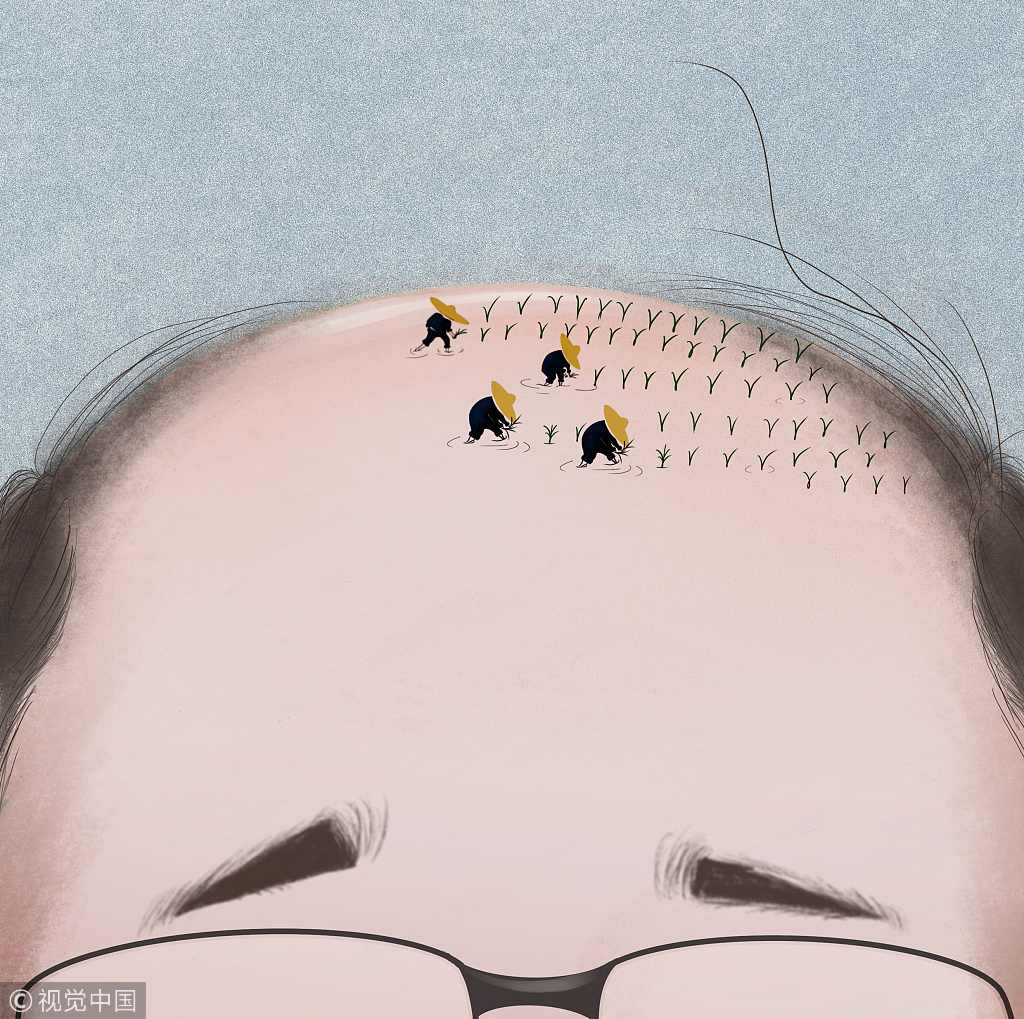
China Pulse
11:05, 07-Apr-2019
The epidemic of hair loss for Chinese millennials
Updated
12:12, 08-Apr-2019
By Wang Xiaonan
02:52

When I wake up every day, I find many strands of hair on my pillow. I also have the habit of cleaning my house every other day since hair is responsible for half of the dirt and grime on floorboards. Just two years ago, I had never even thought that my lustrous hair would one day fall out or turn grey. Given the thick patches my parents had before they turned 50, the reason for my hair loss being genetic didn't seem very likely.
Many of my colleagues, some of whom are years younger than I am, have the same concern. The pressure from working in the news cycle may be a reason, but we are not alone. A recent survey by the China Association of Health Promotion and Education reveals that China's hair loss population stands at a whopping 250 million, most of them between 20 and 40 years old.
Among this population, men accounted for 160 million – that's some 23 percent of Chinese men. The majority of them are reportedly starting to deal with hair loss at 30, two decades earlier than the previous generation.
"When we make the clinical rounds, we can see more young patients with thinning hair, so it does exist," Yang Shuxia, a dermatologist at the Peking University First Hospital, told CGTN.
A white paper by Alibaba Health Information Technology Company last year showed that the post-1990s generation accounted for 36.1 percent while the post-1980s made up 38.5 percent of the hair-shedding population.

VCG Photo
VCG Photo
Baldness is becoming increasingly common among university students. According to a study at Tsinghua University in late 2017, 60 percent of students reported thinning hair and 40 percent claimed to notice receding hairlines. The survey, which polled 4,000 students, defined stress, insomnia and irregular living patterns as major causes for going bald.
Another survey, conducted in 2015, concluded that the bald patches on Chinese men added up to one quarter of Beijing's land area. This "bald wave" has spawned a new lucrative business – the hair loss treatment industry. Statistics from health departments show that consumption by China's urban residents on hair care is rising each year at a fast clip of 30 percent. In the next decade, the country is expected to see an annual growth rate of 260 percent in the business of hair nutrition, restoration and transplantation.
Take a closer look at the consumer data: On JD.com, sales of hair-growing shampoos surged by 136 percent in the first quarter of 2018 year on year. Another e-commerce giant Taobao reported in 2017 that hair products, including vibrating hair brushes, herbal remedies, Minoxidil and adhesive hair pieces, were among its top 40 bestselling lines, over 40 percent of sales of which were made by consumers under 30 years old.

VCG Photo
VCG Photo
Actually, many millennials are aware of the reasons for hair loss. Many of them interviewed by CGTN attribute the condition to irregular daily routines, staying up late and stress amid hectic schedules at work and pressure from a high cost of living in a metropolis.
"Excessive anxiety can, in a way, interrupt the normal growth cycle of hair," said Yang Shuxia. However, she underlined that if you notice excessive hair loss, you don't have to panic. Instead, try to notice if you've undergone significant changes for the past few months such as experiencing constant anxiety, signs of fever, irregular daily routines or rapid weight loss, and then wait for three months to see if those symptoms go away.
If so, then hair loss may be due to external factors – notably a scalp disorder called "telogen effluvium," which could be managed with changes to habit. If that's not the case, then you should consider seeing a doctor.
Reasons for hair loss can be many, from genetic to environmental. Pattern hair loss is inherited while alopecia is due to problems with your immune system, but loss as a result of stress or other habits are not permanent. For many in the fast-paced modern workplace, it's simply a part of growing up. Less anxiety may help bring your lush look back.
(Videographers and video editors: Zhu Danni and Shen Anqi)

SITEMAP
Copyright © 2018 CGTN. Beijing ICP prepared NO.16065310-3
Copyright © 2018 CGTN. Beijing ICP prepared NO.16065310-3